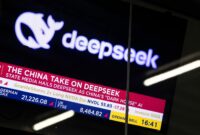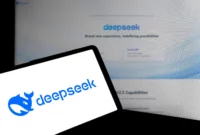Cannot Be Replaced by AI, Artificial intelligence is rapidly transforming the global workforce. From automation in factories to algorithms that handle customer service, many traditional roles are being reshaped, or even eliminated.
While this can be intimidating, it’s important to understand that not every profession is at risk. Some jobs require a human touch, creativity, empathy, judgment, or physical dexterity that AI simply cannot replicate.
Below are 30 jobs that AI is unlikely to replace, along with detailed explanations of why they remain essential in the human-driven economy.
1. Psychologists and Therapists
Human emotions, trauma, and personal struggles require genuine empathy.
While AI chatbots can provide mental health tips, only a trained therapist can interpret subtle emotional cues, build trust, and offer personalized care that feels authentically human.
Great question! Let’s dive into the prospects of psychologists and therapists in the AI era, both challenges and opportunities.
Psychologists and Therapists in the AI Era
Artificial intelligence is transforming healthcare, education, and even mental health services.
Many people now turn to AI-powered chatbots, wellness apps, and digital platforms for initial guidance on stress, anxiety, or mindfulness.
However, despite these technological advances, the role of psychologists and therapists remains irreplaceable. Let’s explore why and how this profession is evolving.
read also: How to Make a Very Simple Liquid Organic Fertilizer from Leftover Vegetable Waste from Cooking
1. Why Psychologists and Therapists Cannot Be Fully Replaced by AI
- Human empathy and connection: Therapy is built on trust, emotional resonance, and shared understanding. No AI can replicate the authentic compassion and empathy of a human therapist.
- Complex human emotions: Mental health often involves trauma, grief, identity struggles, or cultural issues that require nuanced interpretation beyond data-driven algorithms.
- Ethics and responsibility: Psychologists carry professional accountability, confidentiality, and ethical decision-making—something AI cannot fully guarantee.
- Body language and cues: Therapists rely on tone of voice, facial expressions, posture, and subtle cues, which AI struggles to interpret accurately.
a. Opportunities in the AI Era
While AI won’t replace psychologists, it will change how they work:
- AI as a support tool: Chatbots and mental health apps can handle initial screening, basic coping strategies, or appointment scheduling, freeing up therapists for deeper, personalized sessions.
- Data-driven insights: AI can help analyze patient progress through wearable data (sleep, stress levels, heart rate), giving therapists additional tools to design better treatment plans.
- Expanding accessibility: Virtual therapy platforms combined with AI allow psychologists to reach remote areas and underserved populations who may not otherwise have access to care.
- Reduced stigma: AI-powered apps can serve as an entry point for people hesitant to seek human therapy, eventually leading them to professional help.
b. Challenges for Psychologists
- Overreliance on AI tools: Patients may prefer quick AI solutions instead of committing to real therapy, which could dilute the perceived value of professional psychologists.
- Data privacy concerns: The integration of AI in therapy requires careful handling of sensitive patient data.
- Need for adaptation: Therapists must learn to integrate AI-based tools into their practice without losing the human-centered approach that defines psychology.
c. The Future Outlook
The demand for psychologists and therapists is actually growing in the AI era due to:
- Rising awareness of mental health.
- Stress from technology-driven lifestyles.
- Increasing workplace pressure and social challenges.
- The loneliness epidemic in digital societies.
Rather than being replaced, psychologists will become more essential, while AI acts as an assistant to enhance treatment.
✅ In summary:
Psychologists and therapists have strong prospects in the AI era. Instead of replacing them, AI will augment their work, making therapy more efficient, accessible, and personalized.
The human element of empathy, judgment, and trust remains irreplaceable, ensuring the profession’s stability and growth.
2. Teachers and Educators
Education is more than delivering information. Teachers inspire, mentor, and adapt lessons to unique student needs.
AI tools can help with grading and planning, but building curiosity and motivating students requires human presence and guidance.
Great point! Let’s dive into why Teachers and Educators cannot be replaced by AI in the AI era.
Teachers and Educators in the AI Era: Why They Cannot Be Replaced
Artificial Intelligence is reshaping education. From AI-powered tutoring systems to automated grading tools, technology has become a strong partner in classrooms.
However, while AI can deliver information and assist with repetitive tasks, it cannot replace teachers and educators.
The role of a teacher goes far beyond simply transmitting knowledge—it involves mentorship, emotional intelligence, moral guidance, and human connection, all of which AI lacks.
a. Teaching is About More Than Information Delivery
- AI can provide answers, explain concepts, and even adapt learning pace to individual students.
- But teaching is not only about information—it is about inspiring curiosity, encouraging critical thinking, and nurturing creativity.
- Teachers help students connect lessons to real life, develop problem-solving skills, and form values that shape their future.
b. Human Connection and Emotional Support
- Students learn best in an environment of trust, encouragement, and understanding.
- Teachers notice when a student is struggling emotionally or losing motivation—something AI cannot interpret with full accuracy.
- The empathy, encouragement, and reassurance a teacher provides are essential for building confidence and resilience in learners.
c. Cultural and Social Context
- Education involves understanding local culture, traditions, and community values.
- Teachers adapt lessons to fit the background of their students, something AI algorithms may overlook.
- Schools also teach teamwork, leadership, and social responsibility, which require human role models.
d. Moral and Ethical Guidance
- Teachers are often role models for their students, shaping their sense of ethics and responsibility.
- AI cannot guide students in navigating moral dilemmas, developing compassion, or becoming responsible citizens.
- Education is not only academic but also about character-building.
e. Creativity and Adaptability
- Classrooms are unpredictable—students ask unexpected questions, struggle in unique ways, or create disruptive situations.
- Teachers quickly adapt teaching styles, improvise, and find creative methods to engage learners.
- AI works well within rules and data, but it lacks the flexibility and creativity to handle real-world classroom dynamics.
f. Building Future Leaders, Not Just Workers
- AI can help students learn technical skills, but teachers shape future leaders, innovators, and citizens.
- A great teacher sparks passion for science, art, literature, or social justice—igniting journeys that machines cannot replicate.
g. Partnership Between AI and Teachers
- While AI cannot replace teachers, it can enhance education:
- Automating grading and administrative work.
- Offering personalized learning tools.
- Providing data insights on student progress.
- This allows teachers to spend more time on mentorship, creativity, and human interaction—the parts of education AI cannot do.
h. The Future Outlook
- In the AI era, the demand for skilled teachers may even increase, because students need guidance on how to live in a world where machines play a bigger role.
- Teachers will be at the center of developing empathy, ethics, critical thinking, and creativity—skills AI cannot provide.
✅ In summary:
Teachers and educators cannot be replaced by AI because education is fundamentally human-centered.
While AI can support learning through automation and personalization, it lacks empathy, moral guidance, adaptability, and inspiration. Teachers shape not just what students know, but also who they become, and that is something only humans can do.
3. Surgeons
Robotic systems assist in surgery, but the surgeon’s judgment, adaptability in unexpected complications, and ethical decision-making cannot be replaced.
Patients also trust a skilled human to take responsibility for life-or-death outcomes.
4. Social Workers
Social workers address deeply personal issues—poverty, abuse, addiction—that require compassion, advocacy, and human problem-solving.
No AI system can navigate the complex web of emotions, cultural sensitivities, and trust required in these roles.
5. Artists and Creative Writers
AI can generate art and text, but it lacks lived experiences and cultural perspectives.
Human artists create work with intent, emotion, and originality that audiences connect with on a deeper level than machine-made creations.
6. Religious Leaders (Imams, Priests, Rabbis, Monks)
Faith and spirituality involve guiding people through personal and moral struggles.
A congregation seeks wisdom, empathy, and emotional presence—qualities that cannot be simulated authentically by AI.
7. Nurses
AI may assist with diagnostics, but nursing requires physical caregiving, bedside presence, and emotional reassurance.
Patients value the compassionate touch of a nurse when facing illness or fear.
8. Childcare Workers
Caring for children involves nurturing, play, and emotional bonding.
Parents trust humans who can provide safety, love, and moral guidance—something AI robots could never fully replicate.
9. Chefs
Cooking is not just science but also an art of taste, tradition, and creativity.
While machines can prepare meals, chefs bring innovation, cultural storytelling, and artistry to food.
10. Skilled Trades (Plumbers, Electricians, Carpenters)
AI can analyze problems, but these jobs involve hands-on physical labor in unique environments.
Each task is different and requires adaptability, dexterity, and human problem-solving.
11. Lawyers and Judges
AI can analyze laws, but judgment, ethics, and interpretation of complex cases require human insight.
Clients also seek emotional reassurance and strategic thinking beyond what algorithms can provide.
12. Managers and Leaders
Leadership requires vision, motivation, and people management.
AI can provide analytics, but inspiring a team, resolving conflicts, and making strategic calls in uncertain times are inherently human.
13. Journalists and Investigative Reporters
While AI generates news summaries, investigative journalism demands human curiosity, risk-taking, and storytelling. Journalists uncover hidden truths through interviews, fieldwork, and moral courage.
14. Scientists and Researchers
AI helps process data, but true discovery comes from intuition, creativity, and challenging existing knowledge. Breakthroughs often emerge from human curiosity and persistence.
15. Entrepreneurs
Launching a business requires vision, adaptability, risk-taking, and leadership. While AI can provide market data, the bold creativity of entrepreneurs in spotting opportunities remains irreplaceable.
16. Diplomats and Negotiators
International relations demand empathy, persuasion, and understanding of cultural nuance. AI can analyze policies but cannot replace the human ability to build trust and resolve conflicts diplomatically.
17. Fashion Designers
Fashion reflects culture, identity, and personal expression. AI may generate designs, but designers shape trends by drawing on human experience, art, and emotion.
18. Musicians and Performers
Music is a deeply human art that resonates through personal stories and emotional delivery. While AI can generate melodies, live performances and authentic artistry cannot be replaced.
19. Event Planners
Organizing weddings, concerts, or festivals requires human coordination, creativity, and problem-solving. Each event is unique and involves emotional connections that AI cannot replicate.
20. Veterinarians
Animals require empathetic and hands-on care. While AI can assist with diagnostics, only veterinarians can physically treat, comfort, and build trust with animals and their owners.
21. Architects
Architecture involves not only technical design but also aesthetic vision and cultural storytelling. Human architects interpret client needs and integrate creativity into spaces AI cannot fully design with meaning.
22. Human Resources Specialists
HR is about more than hiring; it involves conflict resolution, employee motivation, and workplace culture. These require human judgment and emotional intelligence, not just algorithms.
23. Marketing and Brand Strategists
AI analyzes trends, but building a brand identity and emotional connection with audiences requires human creativity and storytelling. Great campaigns resonate emotionally, not just logically.
24. Politicians and Policy Makers
Politics is not only about data but also trust, leadership, and persuasion. Citizens want leaders who can connect emotionally, debate values, and make moral decisions.
25. Emergency Responders (Firefighters, Paramedics, Police Officers)
In crisis situations, human judgment, courage, and adaptability are vital. While AI may assist in logistics, responding to danger requires human bravery and split-second decision-making.
26. Fitness Trainers and Coaches
Personal trainers motivate, correct form, and provide encouragement in ways that apps cannot. The human connection and inspiration are key to long-term health success.
27. Customer Experience Specialists
AI handles basic support, but building trust, solving complex complaints, and delivering personalized service still require human presence. People want to feel heard, not just processed.
28. Tour Guides and Travel Experts
AI can provide facts, but travel is about storytelling, cultural immersion, and shared experiences. A knowledgeable guide adds passion and personality to exploration.
29. Skilled Craftsmen (Jewelry Makers, Woodworkers, Potters)
Handcrafted work embodies heritage, emotion, and individuality. Unlike machine-made products, these pieces carry human touch, tradition, and artistry.
30. Ethical and Compliance Officers
In an AI-driven world, humans must ensure that technology aligns with ethical values and societal norms. These roles require judgment, moral reasoning, and cultural awareness AI cannot provide.
Conclusion
AI is powerful, but it lacks the empathy, intuition, creativity, and ethical reasoning that make human work unique. Professions centered on relationships, trust, physical craftsmanship, and emotional intelligence remain secure.
Instead of fearing AI, workers should adapt by strengthening human skills that machines cannot copy. By focusing on empathy, creativity, problem-solving, and ethical decision-making, we can thrive in the future of work.




